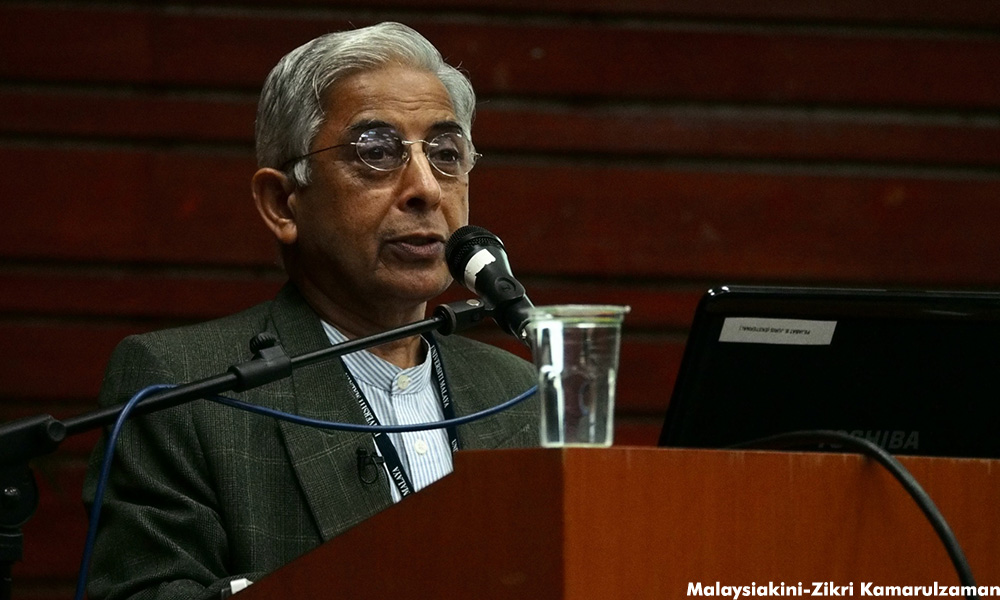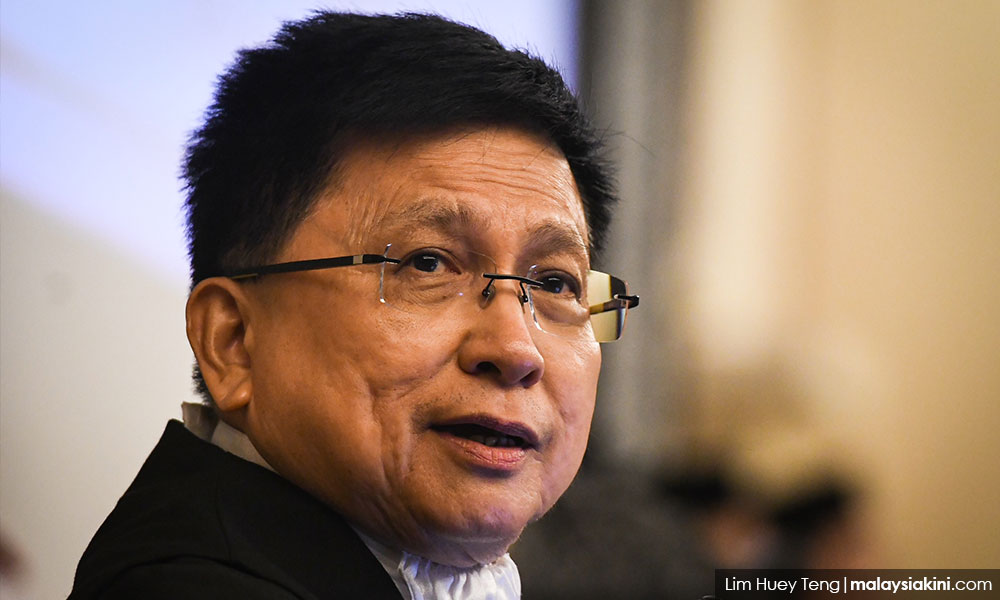
Professor Emeritus Shad Saleem Faruqi (above) today said he noticed judicial activism is more today but warned the effects felt by the judiciary following the 1988 crisis were still felt.
Delivering the fifth Raja Aziz Addruse memorial lecture in Kuala Lumpur, Shad said there was enough in Malaysian constitutional jurisprudence to provide a renaissance in public law.
"Some developments kindle hope that judges are bringing the Federal Constitution from the peripheries to the centre.
"The basic structure doctrine has been revived. The judicial power of the courts eclipsed by an amendment to Article 121 of the constitution seems to have been restored,” he said.
He added the review power of the civil courts over syariah courts had also been asserted and administrative law seemed to be in a renaissance.
"Ouster clauses are being denuded of their exclusionary power. The rules of locus standihave been liberalised. A new doctrine of proportionality in administrative law has been introduced," he said.
"But the judicial winter that descended in 1988 has not yet fully thawed. The picture is mixed. There are currents and crosscurrents.
"On the positive side we have more judicial activism today than in the days of (former Lord President) Salleh Abas though it must be recorded that the Salleh bench (though not Salleh himself) was the most activist constitutional court in Malaysian history," said the academic.
Shad's lecture was themed, "The 30th anniversary of the judicial crisis: Lessons about the importance of judicial independence and impartiality".
Also present were Chief Justice Richard Malanjum (below), Chief Judge of Sabah and Sarawak David Wong Dak Wah, Works Minister Baru Bian and Negeri Sembilan Tuanku Besar, Tunku Ali Redhauddin.
Shad noted that the judicial assertiveness during the Salleh era could be seen in the JP Berthelsen, Mamat Daud and Teoh Eng Huat cases.
He also cited the case of Semenyih Jaya Sdn Bhd, the Indira Gandhi case, the Court of Appeal judgements in the Hilman Idham challenge of the Section 15 University and University Colleges Act and the case of transgender Nur Juzaili among those which came to recognition.
The Semenyih Jaya and Indira Gandhi cases were written by Federal Court judge Justice Zainun Ali where the basic structure doctrine had been restored.
Judges not promoted
Shad also pointed out that since 1988, the promotion of judges was no longer based on legal acumen and seniority.

"The discretion of the chief justice and the prime minister is paramount. In 2007, it came to light that a judge who had not written judgments in 35 cases was elevated to the Court of Appeal and later to the Federal Court.
"We also know that in the matter of two distinguished and independent-minded judges, the late Justice Abdul Malek Ahmad and Justice Mohd Hishamudin Yunus, the PM vetoed their promotions.
“It is only once in a while that the Conference of Rulers is able to block an improper appointment or promotion of a malleable judge," he said.
Malek was only made a Court of Appeal president before he passed away while Hishamudin's elevation was stopped and he retired at the Court of Appeal.
Shad, however, slammed critics questioning Justice Malanjum's ascension to CJ.
"A few weeks ago when the senior most Federal Court judge, who was also admired internationally for some of his dissenting judgments, was promoted to CJ by the new Pakatan Harapan government, some racial and religious bigots, in disregard of the constitution, raised questions about the suitability of a non-Muslim to hold the top judicial post," he said.
The academician also noted while there were ethnic and gender imbalances in the judiciary, an inclusive judiciary with a racial, religious, regional and gender balance was likely to arouse confidence in its ability to deliver justice fairly and impartially.
"Regrettably, our courts suffer massive imbalances in their composition," he said.
He noted that 85 percent of the Federal Court judges come from the Judicial and Legal Service.
Shad said of the number of judges in the Federal Court, 84.6 percent were Malays to 15 percent non-Malays while the male to female ratio was 69 percent to 31 percent.
He said it was also unfortunate that former CJ Mohd Raus Sharif and former Court of Appeal president Zulkefli Ahmad Makinudin were retained past the retirement age of 66 years and six months and this may have led them to their leaning to the executive.
Raus and Zulkefli officially resigned last month following the Pakatan Harapan government take over. - Mkini



No comments:
Post a Comment
Note: Only a member of this blog may post a comment.